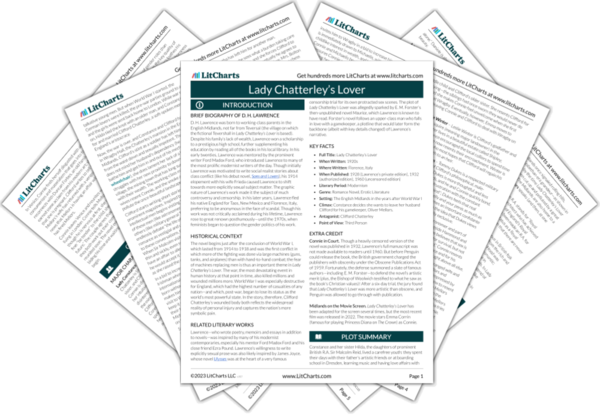Moments ago, Connie equated tenderness with courage and masculinity. Now, she equates it with futurity, suggesting that physical warmth and intimacy are a way to fix the broken time that Mellors (and everyone else in the narrative) struggles against. Perhaps nowhere else does the novel so cleanly articulate its project: rather than recovering from World War I with technology and brute force, as Clifford does, Connie and Mellors will move forward from this cataclysm through “tenderness.”
